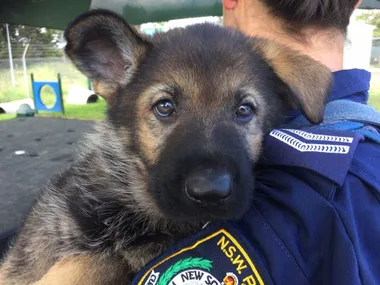Just like their owners, pets can have accidents or suddenly become ill, leading to panic and emotional distress.
But knowing what to do if your beloved pet has an emergency can help to ensure a happier outcome for all.
“It’s a good idea to know a little basic pet first-aid so that you’re prepared should the worst happen,” Queensland-based veterinarian Dr Holly Goldring advises. “It also saves a lot of time and stress to have the number of your closest emergency or 24-hour vet saved in your phone and kept somewhere handy, like on the fridge.”
In the event of an emergency, stabilising your pet and taking them to the vet quickly, calmly and safely can be life-saving. “Getting help within 10-15 minutes will greatly improve your pet’s chances of survival,” she says.
Here’s what to do for your pet when they need help the most.
What to do if your pet suffers a heat stroke
“As a vet in Queensland, I see a lot of heat stress, but it can affect dogs and, to a lesser extent, cats almost anywhere in Australia,” Dr Goldring says. “Symptoms include excessive panting, tongue lolling, a reddened mouth and collapsing. It can escalate fast and, if left untreated, is serious enough to lead to death.”
With dogs, Dr Goldring explains they have no ‘off’ switch. “They’ll just keep on going and going after that ball, and you might not realise that they’re overheating, even if you’ve supplied plenty of water.”
Staffordshire bull terriers and kelpies are particularly vulnerable, as are the brachycephalic (squashed face) dogs including pugs and English and French bulldogs. “Their airways are a bit compromised anyway, so their capacity to cool down is hindered,” Dr Goldring says.
“Use active cooling techniques, which can include spraying them down with a water gun, drapingwet towels on them or laying them beside a bag of ice or some ice bricks. You can also dab the bottom of their paws with cool water – that’s where blood vessels are closest to the surface, so it will help them to cool down.”
What to do if your pet is bitten by a snake
Usually occuring around the head or limbs, a snake bite can be difficult to detect until your animal is in distress – unless you see your pet with the snake or spot the telltale double puncture marks, which isn’t easy with fur.
“A venomous snake bite can cause pets to be paralysed or collapse, have trouble breathing, twitch or vomit, but you can usually help by immobilising them and keeping them calm as you seek help from the vet,” Dr Goldring says.
If treated promptly, up to 80 per cent of pets will survive and make a full recovery within 24-48 hours.
What to do if your pet is in a car accident
Common side-effects a pet could have after a car accident include shock, broken bones, cuts and internal injuries.
“Broken bones are usually easy to spot because your pet won’t be able to walk or the limb will be floppy. A compound injury – where the bone has broken the skin – is even more obvious,” Dr Goldring says. “It’s when your pet doesn’t have any broken bones but is in pain, distress or collapses that they could have an internal injury.”
If your pet is bleeding, gently press a cloth onto the wound to stem the blood flow, if it’s safe for you to do so. Next, Dr Goldring advises scooping up your dog or cat (see “Protect yourself first”) and heading straight to the vet.
What to do if your pet gets bitten
“If your pet has been bitten by another animal, place a gauze pad or clean towel over the wound to stem the bleeding,” Dr Goldring says.
If the wound is pumping blood, an artery could be injured, which requires immediate treatment. However, you can buy some extra time by stemming the bleeding and elevating the wound while on the way to the vet. Even if the wound isn’t bleeding much, it should still receive veterinary attention.
“Bites cause serious infection, so any kind of open-wound injury requires treatment by a vet,” she adds.
What to do if your pet is poisoned
“Ingesting medications and poisons can cause respiratory distress and ulcers, as well as kidney or liver failure. Causing your pet to vomit will eliminate toxins.”
If your pet appears to be poisoned, immediately phone your vet for advice.
“Your vet can talk you through the vomiting procedure over the phone if it’s urgent. Most of the time that will fix the problem, but if you’re not sure or your animal has ongoing symptoms, take them in to see the vet,” Dr Goldring advises.
Protect yourself first
As with a human emergency, the first rule of assisting an animal in immediate danger is to help only if it’s safe to do so. Even the snuggliest of pets can panic when in shock after an injury.
“In most critical situations, scooping up your pet into a big blanket or doona and wrapping them up to keep them calm will prevent them from lashing out, and is also the best way to transport them,” Dr Goldring says.
If someone else can drive you to the vet, cradle your pet to offer comfort – if they want it. If you’re alone, you may be able to put them in a box or carrier. Either way, try to stay as calm as possible en route.



